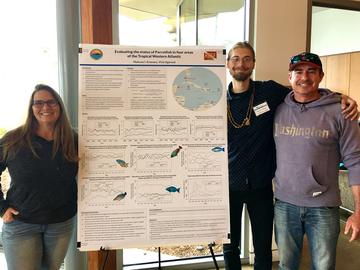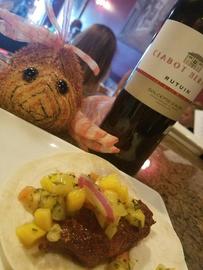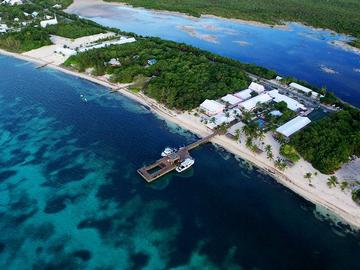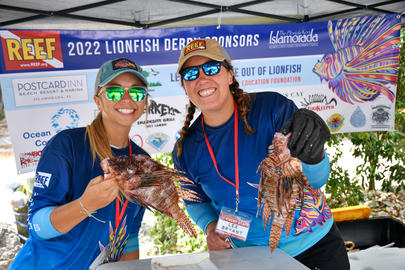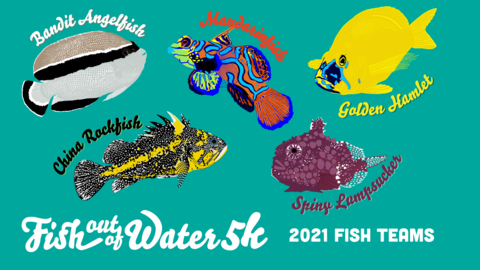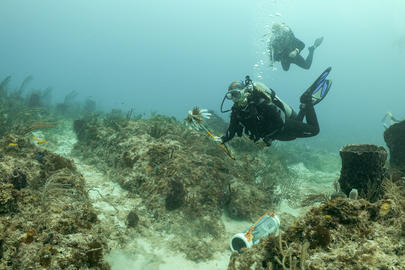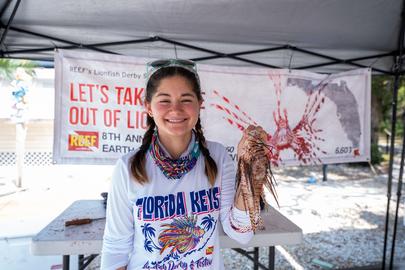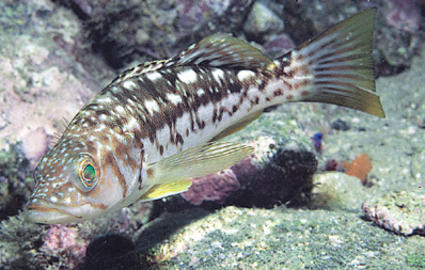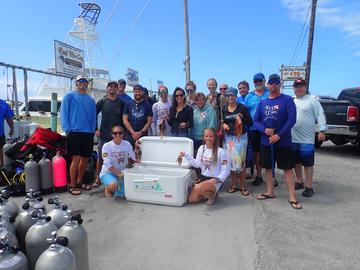Herbivores play a critical role in balancing coral reef ecosystems. In the Caribbean, this role is mostly filled by parrotfish, surgeonfish, and sea urchins. Parrotfish take their important role one step further in that their constant scraping of algae growing on rock and dead coral results in a lot of poop, which is effectively the nice white sand found on beaches. A single parrotfish can generate up to 700 pounds of sand a year. Parrotfish are also a favorite food fish, and unfortunately their populations have been heavily depleted in many areas.
Current search
Search found 303 items
- tropical western atlantic
On June 22, SCUBA divers, marine conservation enthusiasts, and foodies gathered at Piccolo Ristorante in Fort Lauderdale, Florida, to attend the second annual Lionfish Tasting Dinner. During the event, patrons learned about effects of the lionfish invasion while sampling the tasty invader’s light, white meat. At the end of the evening, DiveBar, one of the night’s sponsors, presented REEF with a check for $1,500 to support our Invasive Lionfish Program.
Smaller and less developed than Grand Cayman, the sister islands of Cayman Brac and Little Cayman are the perfect spots to do plenty of diving. The first five days will be spent diving at Cayman Brac Beach Resort, followed by another five days diving Little Cayman's famous walls and reefs. Both resorts are well known for providing a high level of service.
KEY LARGO, FLA. – Thanks to the recent efforts of four local divers, there are several hundred less invasive lionfish wreaking havoc on Florida Keys reefs. Team Forever Young, consisting of Tony Young, Jason Vogan, Jeff Tharp, and Luke Rankin, collected 426 invasive lionfish while participating in the 2022 Earth Day “Locals” Lionfish Derby, hosted by Reef Environmental Education Foundation.
There's still time to register for the second annual Fish Out of Water Virutal 5K, coming up on June 7-13, 2021. If you haven't registered yet, click here to do so now. Be sure to sign up soon - early bird registration rates end on May 10! When you sign up, you will choose to join one of five Fish Teams. Each fish is a popular species found in REEF's Volunteer Fish Survey Project regions.
KEY LARGO, FLA. – Reef Environmental Education Foundation (REEF) will host its 11th Annual Upper Keys Lionfish Derby, Thursday Sept. 10 through Sunday, Sept. 13. During this socially-distant event, divers will compete to remove as many invasive lionfish as possible. Cash prizes will be awarded to the teams who harvest the most, largest, and smallest lionfish. The “most lionfish” category will include the competitive Apex Predators division, as well as the Reef Defenders division, intended for more casual lionfish hunters. Teams may choose to register in either division.
Fourteen teams of divers persevered through windy conditions to bring in 494 invasive lionfish during the 2021 REEF Earth Day “Locals” Lionfish Derby. Teams were permitted to fish in Monroe County waters from sunrise to sunset on Saturday, April 24. More than $2,500 in cash and prizes was awarded to teams who brought in the most, largest, and smallest lionfish.
This month, REEF is proud to highlight one of our outstanding Conservation Partners: Key Dives in Islamorada, FL. REEF Conservation Partners are active organizations and dive shops dedicated to protecting marine environments. As valued REEF ambassadors, they teach fish ID classes, host survey dives, organize volunteer events and more. Read on to find out how you can get involved with these centers of conservation action!

